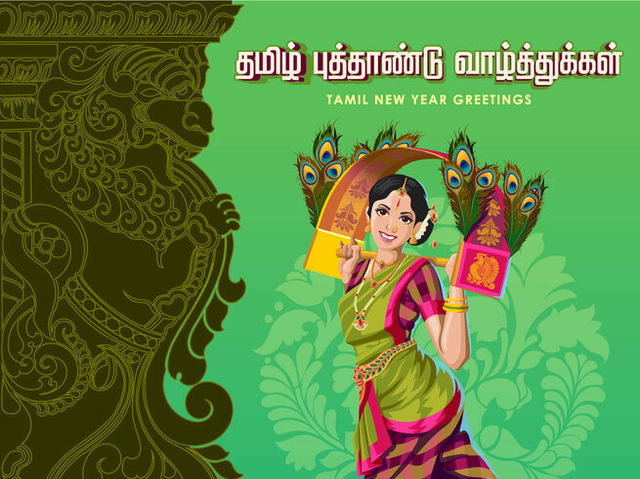Tamil New Year, also known as Puthandu, is celebrated on April 14 every year. It marks the beginning of the Tamil calendar’s first month, Chithirai, and is observed by Tamils worldwide as a day of renewal, prosperity, and joy.
Tamil New Year is a public holiday in Tamil Nadu, India, and Sri Lanka. In Tamil Nadu, government offices, schools, and banks remain closed, allowing people to participate in festivities.

History of Tamil New Year
The Tamil calendar is based on the solar cycle, and Puthandu aligns with the vernal equinox. Historical records and inscriptions indicate that Tamil New Year has been observed for centuries, with references found in ancient Sangam literature. The day is also linked to Hindu mythology, where it is believed that Lord Brahma began the creation of the universe on this day.
Celebrations and Traditions
Preparations and Rituals
Homes are thoroughly cleaned and decorated with kolam (rangoli) at the entrance. The entrance is adorned with mango leaves, symbolizing prosperity.
Special Poojas and Offerings
Devotees visit temples to seek blessings, especially at temples dedicated to Lord Vishnu and Lord Shiva. A special pooja is performed at home, and a kanni (auspicious sight) of gold, silver, fruits, flowers, and betel leaves is arranged to bring good fortune.
Traditional Feast
A grand feast is prepared, including mango pachadi (a dish with sweet, sour, and bitter flavors representing life's experiences), sambar, vada, and payasam (a sweet dish).
Cultural Celebrations
People wear new clothes and exchange greetings. In some regions, processions and cultural programs, including classical music and dance performances, take place.
Traditional Tamil New Year Greetings
People greet each other with "Puthandu Vazthukal" (புத்தாண்டு வாழ்த்துக்கள்) meaning "Happy New Year." Other variations include:
- "Iniya Puthandu Nalvazhthukkal" – Wishing a sweet and prosperous New Year.
- "Varusha Pirappu Nalvazhthukkal" – Happy birth of the New Year.
You might like to read these articles next: